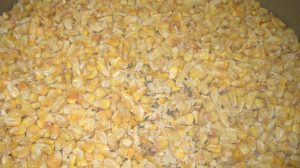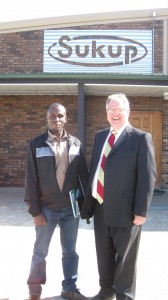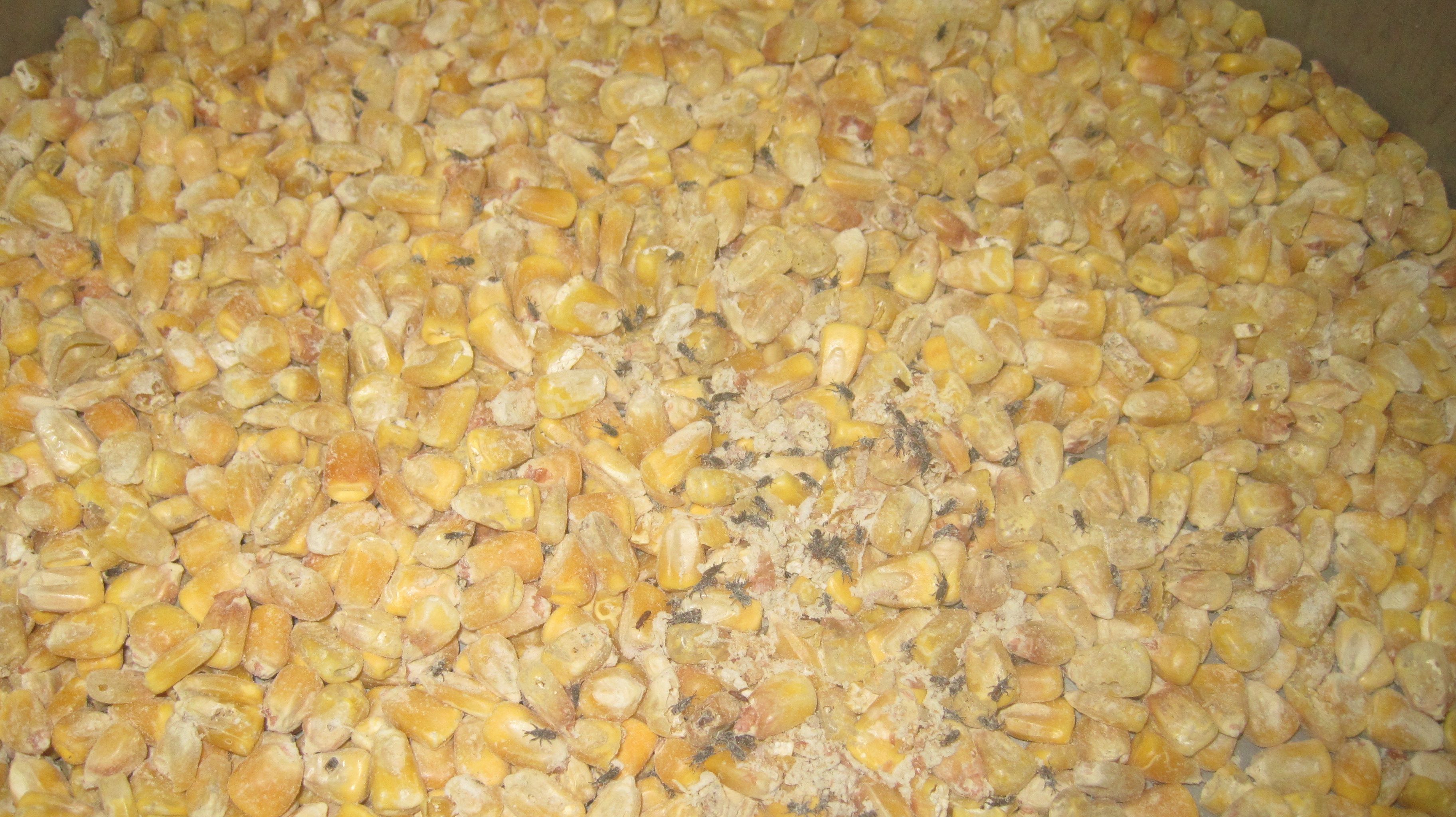Maize is a chief source of nutrition for about 900 million of the world’s poorest consumers and about one-third of all malnourished children, but poor grain storage can cut the amount of available maize in half. That’s why Denis Bbosa is at Iowa State studying new methods of safely storing grains.
Bbosa, a graduate assistant for research in agricultural and biosystems engineering, came from Uganda to get his master’s degree at Iowa State and began studying grain storage with his advisor, Tom Brumm, associate professor of agricultural and biosystems engineering.

Bbosa, who earned his bachelor’s degree from Makerere University in Uganda, is working with Brumm to reduce grain storage losses caused by insects called maize weevils in Africa.
The project developed when Carl Bern, professor of agricultural and biosystems engineering, saw the amount of grain loss in Tanzania and changed his research focus to hermetic grain storage, a form of airtight storage commonly used in developing nations.
“The idea is that if you deprive insects of oxygen in stored grain, they die, thus reducing or eliminating the loss of grain,” said Brumm.
Current storage in Sub-Saharan African countries can result in up to 50 percent grain loss in some cases, which is often the difference between having extra grain to sell and going hungry, he added.
Bbosa has been raising weevils to test hermetic storage, and the group is now ready to move the research to a larger scale.
Using six 55-gallon barrels, three will be open to the atmosphere with screens on top to avoid weevils escaping and allowing oxygen flow, and three will be sealed until the oxygen level drops below 4 percent, at which weevils cannot survive.
“With hermetic storage, we try to create an environment whereby the weevils will assume all the oxygen that is in the barrel,” explained Bbosa. “At the end of the day when they use up the oxygen, they have to die.”
Hermetic storage comes with more advantages than just killing off weevils: it also keeps rodents out of the storage structures, saves seeds for use during future growing seasons and eliminates the need for insecticides, which can be too costly for many farmers.
Bbosa said this method is a more cost-effective solution to grain storage. The airtight metal or plastic structures can last more than 20 years, compared to plastic bags that only last about two or three years.

While the focus is currently on helping subsistence farmers in Africa, Bbosa believes all farmers can start using this method and reduce use of insecticides worldwide. “It becomes environmentally friendly to the consumer because no chemicals have been used to preserve the grains,” he said.
Bbosa’s group is also looking at an alternative method to eliminate the weevils. They blend corn and amaranth—a small grain—to fill all the space within the stored corn.
“By filling the interspaces between the corn kernels,” Bbosa said, “we assume that it eliminates the movement of maize weevils so they can’t get to a breeding spot or the kernels. Automatically they will die because they will not have access to food.”
The amaranth for his project is provided by Mark and Marcy Jones, farmers from Oshkosh, Nebraska. When the research team initially contacted the Joneses to buy the grain, the couple decided to donate their own because they liked the research.
Once Bbosa finishes the research here, he will visit another country in Africa to conduct the same research and confirm his results. He says he hopes it will be ready for use by farmers in the next three years.
The project is funded by Sukup Manufacturing Company, and Bbosa said his research group is very thankful for the company’s support. “This project is expected to reduce the number of hungry people in developing countries.”
